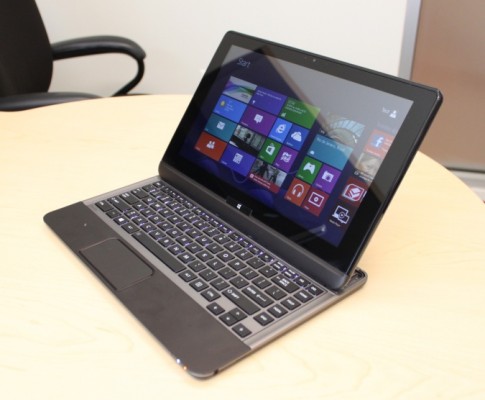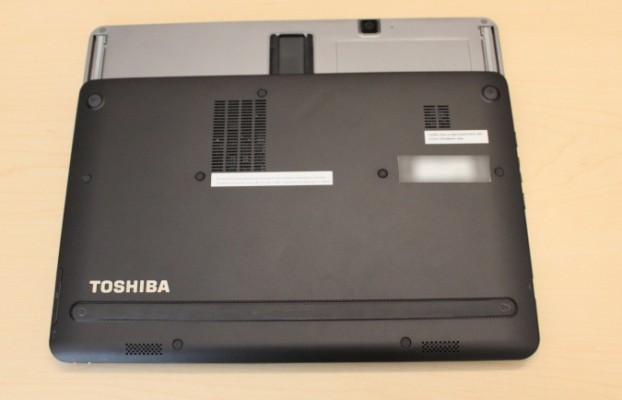Toshiba Satellite U925t: Windows 8 Ultrabook Sports Sliding Touchscreen
Sign up to receive The Snapshot, a free special dispatch from Laptop Mag, in your inbox.
You are now subscribed
Your newsletter sign-up was successful
The Toshiba Satellite U925t combines a tablet and an Ultrabook in a sliding design that's not only surprisingly light but a real heavyweight when it comes to power. This Windows 8 hybrid measures a mere 0.78 inches thin and weighs 3.2 pounds, but crams in a Core i5 processor along with a tough 12.5-inch Gorilla Glass display.
When you slide the screen up from tablet mode to notebook mode, you'll see the rear 3-MP camera in the back for when you need to capture a quick shot. A front HD webcam is there for video chats. Slide the display up further and you'll reveal the LED backlit keyboard, which provides plenty of travel given that this is a sliding design.
MORE: Top Windows 8 Tablet-Laptop Hybrids
Having to slide the screen all the way up is a little awkward, but at least the hinge feels sturdy. Plus, you get a small but serviceable ClickPad with Windows 8 gesture support. As a tablet, the U925t has all the sensors you'd expect, including ambient light, 3D acceleration, gyroscope and manetometer, but you also get NFC built in for sharing files and pairing devices.
The U925t will ship with a Core i5 CPU and a 128GB solid state drive for snappy performance, along with a decent array of ports. Expect two USB 3.0, a memory cad reader and HDMI connectivity.
On the software front, this tablet-Ultrabook combo will feature several Toshiba Windows 8 apps, including Toshiba Desktop Assist (which feels a bit like a Start menu), Toshiba Central (great for support) and Book Place and News Place.
So what about the price? Toshiba isn't revealing any details yet, but we'd guess north of $1,000. The Satellite U925t will launch October 26th along with Windows 8. Stay tuned for a full review.
Sign up to receive The Snapshot, a free special dispatch from Laptop Mag, in your inbox.



